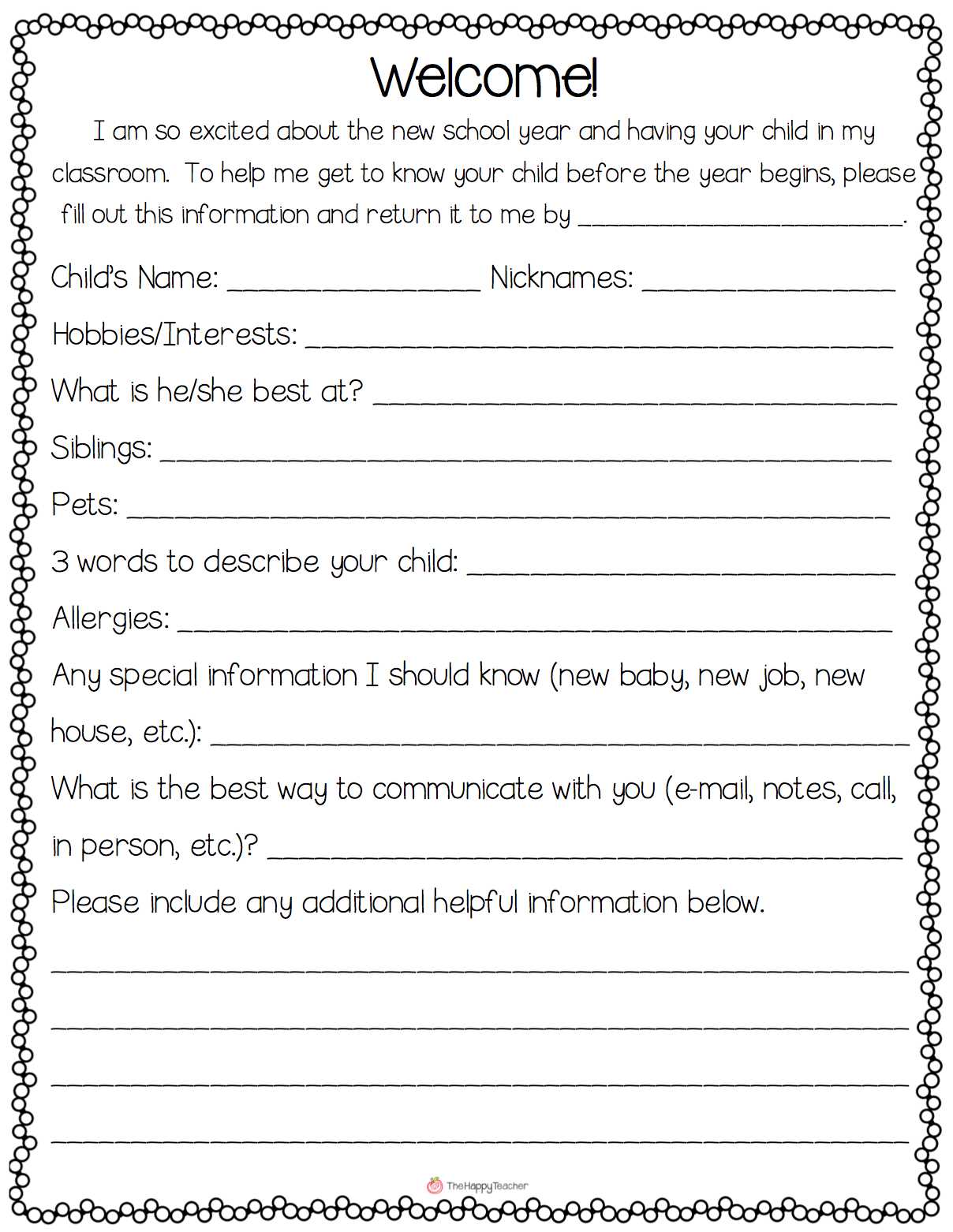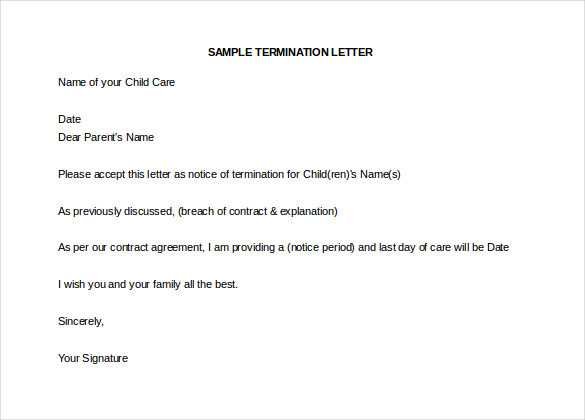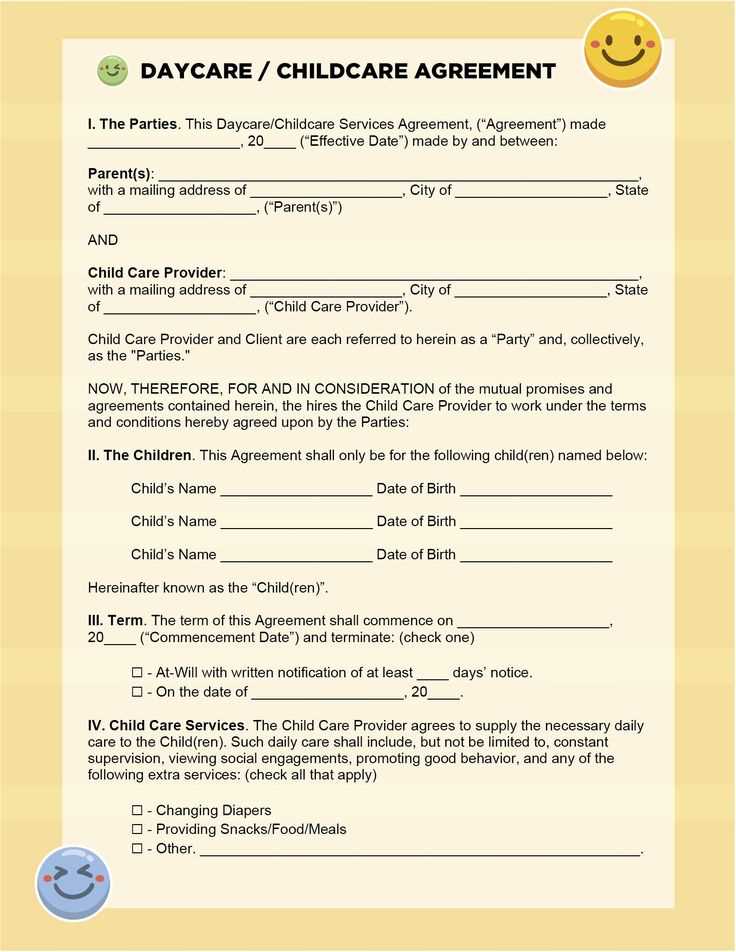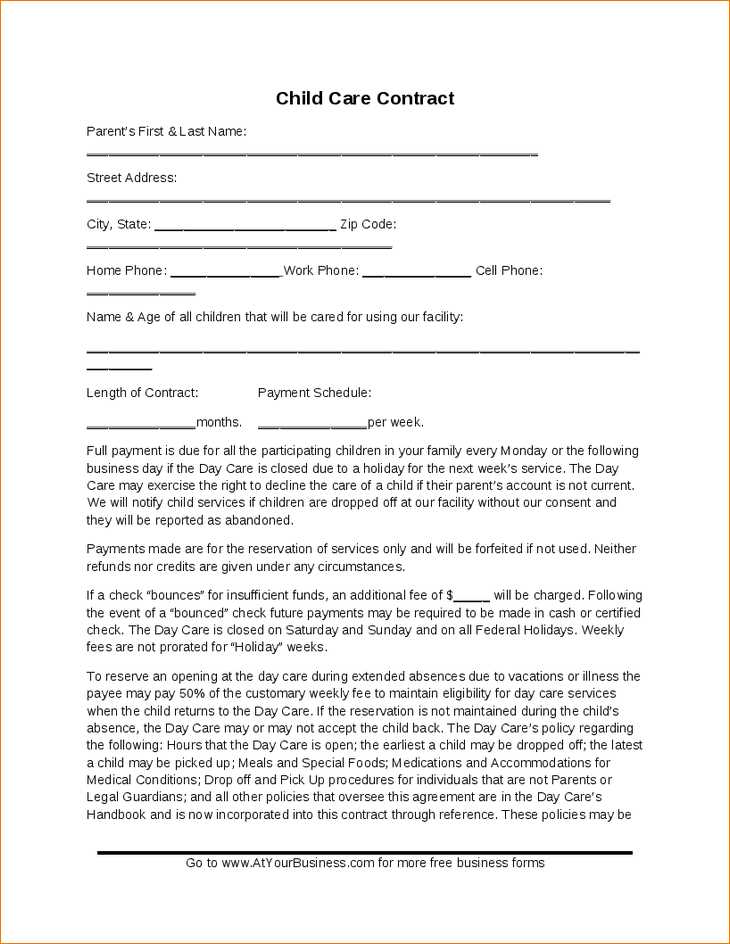Daycare letter to parents template

Start with clear communication. Begin your letter by addressing any specific concerns or announcements for the day. Include relevant details like changes in schedule, upcoming events, or required items for the children. Make sure to explain any necessary actions parents need to take.
Offer a personal touch by acknowledging any milestones or achievements of the children. This helps build trust and shows that their child is being cared for and recognized. You can highlight specific activities the children enjoyed or learning moments that occurred during the week.
End the letter by providing information on how parents can reach out for questions or updates. A friendly reminder about communication channels reinforces your openness and encourages a smooth exchange of information between the daycare and parents.
Daycare Letter to Parents Template
Begin with a clear greeting and introduce the purpose of the letter. Keep it concise and professional while maintaining a warm tone.
- Subject: Include the main topic of the letter–whether it’s about upcoming events, policy updates, or general information.
- Introduction: Open with a friendly greeting and the reason for reaching out. Mention the child’s name if necessary for personalized context.
- Details: Provide specific information parents need to know. This can include important dates, changes in schedules, or new activities.
- Action Steps: If you need the parents to take any action, explain this clearly. For example, ask for signed forms, RSVP confirmations, or updates on allergies.
- Closing: End the letter with a positive tone. Thank the parents for their attention and offer your support if they have any questions.
Here’s an example:
Subject: Important Update About Our Summer Activities
Dear Parents,
We hope you are having a wonderful week! We would like to inform you about some exciting summer activities happening in the coming month. On July 15th, we’ll be going on a field trip to the local zoo, so please ensure your child arrives on time and brings a packed lunch.
We also wanted to remind you that our summer schedule starts on July 1st, and it includes some changes in activity hours. Please review the updated schedule attached to this letter.
If you have any questions or need further information, don’t hesitate to contact us. Thank you for your continued support!
Sincerely,
[Your Name]
[Daycare Center Name]
Personalizing Your Letter for Parents
Begin by addressing the parents by their names. This small gesture immediately establishes a personal connection and sets a welcoming tone. Use the child’s name frequently throughout the letter to emphasize the focus on their development and well-being.
Highlight Specific Events or Achievements
Incorporate recent milestones or activities that their child has achieved. For example, mention when the child learned a new skill or successfully participated in a group activity. This shows attentiveness to the child’s progress and makes the letter feel unique.
Express Gratitude and Collaboration

Acknowledge the parents’ support and involvement in the child’s growth. Mention how their contributions, whether through communication or participation, positively impact the daycare community. This strengthens the partnership between the daycare and the parents, reinforcing the importance of teamwork.
Addressing Key Topics in Daycare Communications

Ensure clarity in daily updates. Parents value knowing what their child experienced during the day, including activities, meals, and any special occurrences. Use specific language to describe routines, such as “Art class at 10 AM” or “Ate lunch at noon.” Share any concerns promptly to keep parents in the loop and avoid surprises. For instance, if a child had difficulty transitioning to nap time, mention it with details like, “Samantha struggled to settle after lunch, but we worked through it by reading her favorite story.”
Health and Safety Updates
Notify parents about any health-related issues immediately. This includes minor injuries, changes in behavior, or any signs of illness. For example, “Luke developed a mild cough around 2 PM; we monitored him closely and kept him comfortable.” Also, remind parents about daycare policies such as sick child protocols or necessary immunizations. Be clear about any upcoming health-related requirements like physical exams or health forms due soon.
Upcoming Events and Activities

Keep parents informed about future events that involve their child. Whether it’s a field trip, special visitors, or a classroom celebration, provide details on dates, times, and what parents need to prepare. If a child needs to bring something from home, mention it ahead of time, like “Please send in a water bottle with your child for the field trip on Friday.” This ensures everyone is well-prepared and avoids last-minute confusion.
Setting Clear Expectations for Parents
Clarify the goals and routines for both staff and parents to ensure smooth communication and understanding. Set specific guidelines on drop-off and pick-up times, along with any special needs or requirements for the child. Parents should know what is expected in terms of health documentation, behavior, and attendance.
Provide a list of daily activities and an outline of any special events or updates. Establish how parents can contact staff and the appropriate times for communication, ensuring consistency in responses. Make sure to include policies on late fees, illness protocols, and holiday schedules to avoid confusion.
Encourage parents to share any concerns or changes in their child’s needs promptly. Transparency is key to fostering a positive relationship between daycare and parents.
| Expectations | Details |
|---|---|
| Drop-off/Pick-up | Clear start and end times for the day; inform if late. |
| Health and Safety | Provide health records and any allergies or special conditions. |
| Behavioral Guidelines | Discuss any specific behavior management approaches used. |
| Communication | Preferred contact method and times for inquiries or updates. |
| Special Events | List upcoming events or activities to keep parents informed. |
Including Important Dates and Events
Include all key dates in your communication. Clearly mark holidays, school closures, and any special activities like parent-teacher meetings or field trips. Specify deadlines for any necessary forms or payments, so families can plan accordingly.
Special Celebrations and Activities
Make sure to highlight any upcoming events, such as holiday parties or seasonal activities, that require preparation or participation. For example, if a holiday-themed event needs parent volunteers, specify the dates and how parents can get involved.
Reminders and Updates
Send reminders ahead of significant events. Mention specific times and locations for activities, and ensure families are aware of any changes in the usual routine, like early dismissals or themed dress days. Keep this section clear and concise to avoid confusion.
Ensuring Tone and Language Suitability
Use clear and concise language in your daycare letters. Address parents directly, keeping the tone warm yet professional. Opt for a conversational style to create an inviting atmosphere while maintaining respect. Avoid overly formal language, as it can create distance and reduce the sense of approachability.
Be mindful of cultural sensitivities. Tailor your language to the diverse backgrounds of the families you serve. Steer clear of jargon or complex terms that might confuse readers. Simplify your message, ensuring it’s easily understood by all, regardless of their familiarity with childcare terms.
Maintain a positive and supportive tone, especially when discussing any concerns. Frame challenges in a constructive way, offering solutions or steps to improve the situation. This helps parents feel confident and reassured, rather than defensive or overwhelmed.
Adjust your language based on the nature of the communication. For routine updates, a friendly and straightforward tone works best. For more serious matters, a respectful and empathetic tone ensures the message is received without causing undue stress or misunderstanding.
Following Up on the Daycare Letter
After sending the daycare letter, reach out to parents within a week to confirm receipt. It’s helpful to provide additional clarification if needed. Offer to answer any questions or concerns they may have about the letter’s contents.
Provide Clear Instructions
If your letter includes forms or actions the parents need to take, ensure they understand how to complete these tasks. For example, if you’ve asked them to submit specific documents or provide certain information, be clear on deadlines and the method of submission. Follow up to confirm they’ve received the necessary materials and are on track to submit them on time.
Maintain Open Communication
Invite parents to contact you if they require further details. Encourage them to express any worries or special needs regarding their child’s care. A personal follow-up shows your commitment to their child’s well-being and builds trust.